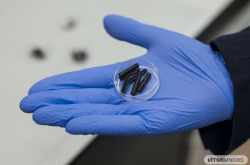Cardiovascular diseases are one of the leading causes of death globally. Lately, the growing number of patients with atrial fibrillation (a type of heart arrhythmia characterized by rapid or irregular beating of the heart’s atrial chambers) in particular has been on the cardiologists’ radar. Over the past 20 years, the number of cases of this disease has grown by 31%. Atrial fibrillation is associated with risks of stroke and heart failure; these, however, can be prevented with blood thinners or by restoring the normal heart rhythm.
The latter can be achieved with medicine or via electrical cardioversion, a “reset” of the heart rhythm with an electric pulse. This procedure is a practice adopted globally, but not that widespread in Russia outside major clinics.
Researchers from ITMO’s Public Health Sciences Master’s program have analyzed over 1,000 records of electrical cardioversion conducted in 2016-2022 at the Tarusa Hospital, a clinic in the Kaluga Oblast that serves a district of 15,000 residents. Apart from information on the procedure itself, the records contained data on patients’ gender, age, BMI, and any concurrent diseases.
It turned out that on average, electrical cardioversion is 92% effective; what’s more, the procedure’s effectiveness increased for those patients who underwent it twice (95% positive outcomes vs 86%). Complications were reported in only 1% of procedures and weren’t severe.
“With this study, we wanted to demonstrate to the country’s cardiologists that electrical cardioversion is an effective treatment strategy and should be incorporated into practice. Having analyzed data from a regular hospital, we’ve proven that this practice is truly implementable in Russia,” explains Artemiy Okhotin, the paper’s first author, a cardiologist and a graduate of the Public Health Sciences Master’s program.

Artemiy Okhtin. Photo by Megabyte Media
The authors believe that electrical cardioversion at Russian hospitals deserves further study, including longitudinal research of cardiac rhythm in patients after the procedure.
“This paper is one of the first publications created within the Public Health Sciences Master’s program. We are hoping that in the future we’ll see even more high-profile publications from our students that will have an effect on public health practices not only in Russia but globally,” added Anton Barchuk, an epidemiologist and founder of the program.

Anton Barchuk. Photo by Megabyte Media





